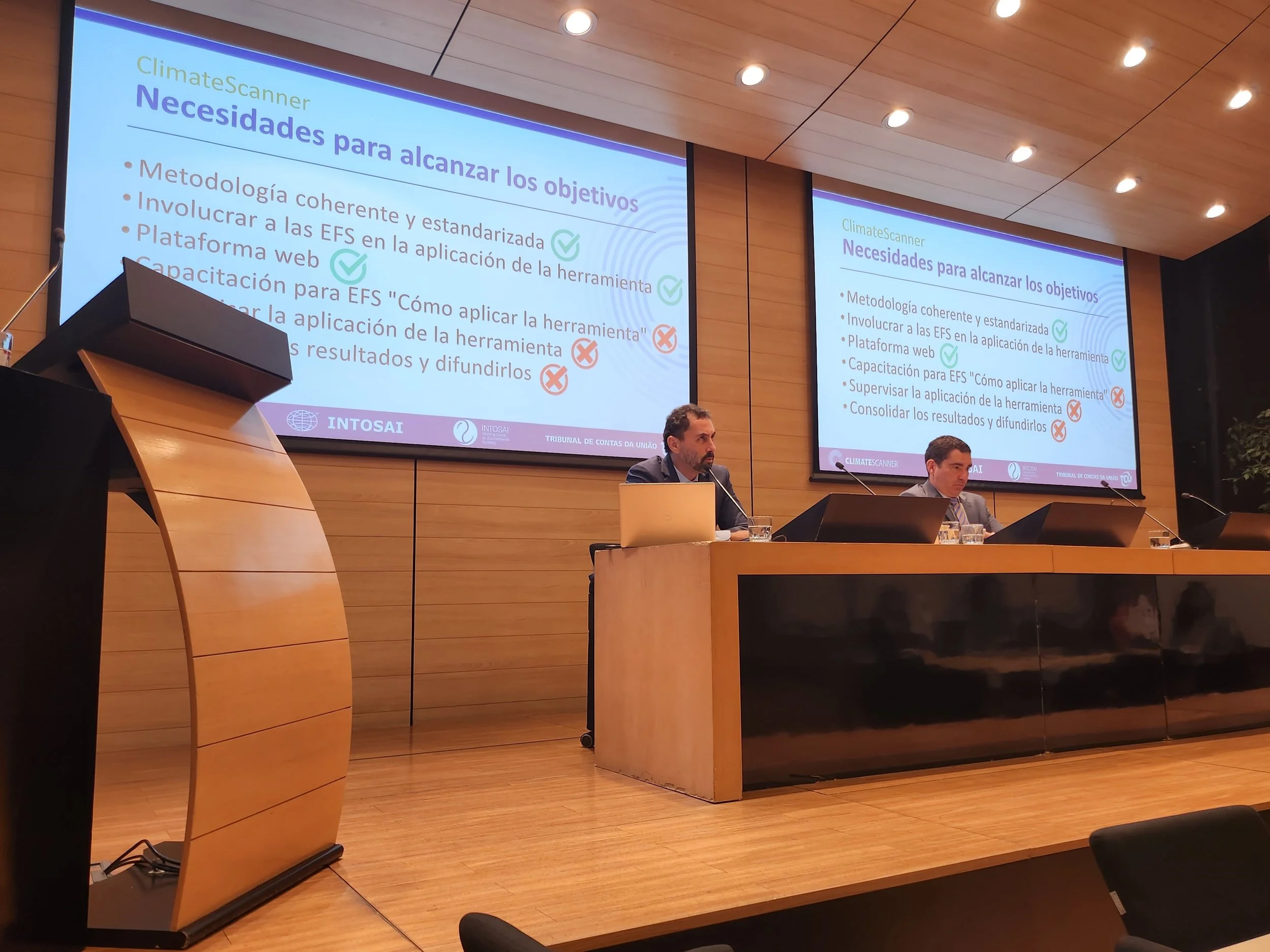By Jane Rogers, Sector Manager, Office of the Auditor-General, New Zealand
In October this year, I was privileged to represent the PASAI region’s Working Group on Environmental Auditing (WGEA) at a workshop on climate change and specifically how SAIs can contribute, in Santiago, Chile. This blog post is about the ClimateScanner project, which was a focus of that workshop, and some of the other themes emerging from SAIs’ work in the climate area.
ClimateScanner project
SAI New Zealand, as well as being the PASAI region’s WGEA representative, is part of a group of 18 SAIs from across the world that have been working with SAI Brazil on the ClimateScanner project. The ClimateScanner is a web-based tool that allows SAIs to carry out a rapid review and assessment of government climate actions in three areas:
public policies,
governance, and
climate finance.
The tool involves researching the climate-related actions in these areas and making an independent assessment of their adequacy using a grading scale.
Among the project’s aims is for SAIs to become more familiar with climate actions in their jurisdictions and to enable them to conduct climate-related audits in the future. SAIs from all INTOSAI regions are encouraged to participate in the ClimateScanner project for maximum impact.
SAI Brazil’s workshop presentation on the ClimateScanner project
Each SAI assesses its own government and completes the web-based tool. The information collected will then be consolidated into a global picture. This will be presented at the 29th United Nations Climate Change Conference (COP29) at the end of 2024 and will show strengths and challenges in governments’ climate actions around the world.
The results for each country at a national level will help governments identify vulnerable areas. They will also help SAIs identify important topics for their future work. The information can also be used to inform work at a regional level, which is important in a region like ours that is especially vulnerable to the impacts of climate change.
It is vital that we get as complete a picture as possible of our region’s climate actions. Therefore, we encourage all Pacific SAIs to participate in the ClimateScanner project. The results will give us a useful assessment of the legal and policy framework for addressing climate change in the Pacific, as well as climate finance arrangements, and can help draw attention to these issues and lead to more climate action.
PASAI and the regional WGEA will be coordinating with SAI Brazil to organise training and support for SAIs that choose to take part. The training is expected to be in June 2024, with the aim of completing the tool by that September.
We will provide more information about the project in due course, including seeking a commitment from each SAI to take part in the ClimateScanner project next year.
Inter-regional workshop on climate change: The contribution of SAIs
The workshop I attended in Chile was organised by the Special Technical Commission for the Environment (COMTEMA) which is part of OLACEFS (Organization of Latin American and Caribbean Supreme Audit Institutions). As well as a focus on the ClimateScanner, there were sessions on other climate and environmental audit-related issues, including presentations from the WGEA’s regional representatives.
I spoke at the workshop about the earlier PASAI co-operative audit on climate change and the Pacific SAIs involved in the global co-operative Climate Change Adaptation Actions (CCAA) audit. I also spoke about the work we are doing at SAI New Zealand, which includes preparations to provide assurance over greenhouse gas emissions and a performance audit on climate change and local government.
The themes that came across in the other presentations included:
Complexity: Climate change involves many different disciplines that often don’t speak the same language, as well as both public and private organisations. It is also important to not just think in environmental terms, as the effects of climate change are also social and economic.
Co-ordination: This is key at all levels (nationally, regionally and globally), but is also one of the greatest challenges.
Inclusion: Climate change is an additional factor in inequality. Not all communities have the same vulnerabilities or resources to help them adapt, and those most affected are generally contributing the least to the problem.
Data: Accurate and understandable information is important to decision makers, but also to the public who must be part of the solution.
The presentations also considered the role of SAIs in climate change. They noted that environmental auditing is becoming a priority for many SAIs who have an important role in raising awareness about climate change through their work.
For more information
You can find more information about the ClimateScanner project online and you can email me or Jonathan Keate (Pacific RWGEA Coordinator) if you have any questions or comments.









